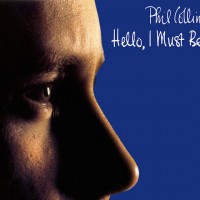Thought of (if it’s thought of at all anymore) as a divorce record, Phil Collins’ solo debut is something much different in the listening.
Rather than wallowing in what must have been a devastating turn of events, Face Value instead offers a brisk variety of musical settings. (None, perhaps, more surprising than black music.) As such, Face Value did more than sweepingly redefine Genesis’ new-ish frontman as a solo artist.
Released on February 9, 1981, Face Value ended up as a fulcrum to everything that came later, speeding up changes in his rapidly metamorphosing progressive-rock band, which was then still being reborn in the wake of twin departures by Peter Gabriel and then Steve Hackett. Even today, you can hear several hamstring-pulling moments for old-school Genesis fans. While Collins includes expected arty instrumentals in “Droned” and “Hand in Hand,” he also sneaks in some then-trendy programmed rhythms — notwithstanding the towering irony of his being, you know, a drummer.
Dominated in the popular consciousness by “In the Air Tonight” (No. 2 in Britain; Top 20 in the U.S.), perhaps the best-known Collins solo track there is, Face Values makes way, too, for the kind of MOR balladry that would shape his — and Genesis’ — image in the decade to come. And, of course, for the goofy videos. He even tries out a Beatles song.
It’s a still-impressive display of radio-friendly musical versatility, sometimes exciting and always entertaining, a time capsule of everything that made Phil Collins into Phil Collins — despite the fact that Face Value began with something so dark, something so un-Phil Collins, as the break down of the first of his three marriages.
Collins was left alone in the house they once shared, and began furiously working. That played out in rough cuts of tracks like “I Missed Again” (No. 14 in the U.K.; No. 19 in America), which was originally called “I Miss You, Babe.” In the midst of a tornado of sentiment, these sessions would also provide the basis for two songs on Genesis’ 1980 album Duke (“Please Don’t Ask”, and the Top 20 hit “Misunderstanding”) as well as the eventual No. 1 solo smash “Against All Odds,” from 1984.
Later, working in a Los Angeles studio, Phil Collins added touches both inviting and surprising to the original masters for Face Value. “Behind the Lines” is a jazz-inspired rethinking of a Genesis tune he co-wrote. Heck, “This Must Be Love,” with a vocal assist by Stephen Bishop, was about a new romance with the woman who would become his second wife. Ronnie Scott did the tenor solo on “Missed Again.” “If Leaving Me Is Easy” (No. 17 in Britain, unreleased in the U.S.) featured Eric Clapton on guitar. But Collins, perhaps telegraphing later soul-influenced offerings like 1983’s “You Can’t Hurry Love” and 2010’s Going Back, also called up the Phenix Horns — famous for having appearing alongside Earth Wind and Fire. He even adds a funky vocoder effect in “I’m Not Moving.”
In so doing, he attracted the attention of late Atlantic Records founder Ahmet Ertegun, who signed Phil Collins to his first solo deal. “That was one of the things that made it an international hit,” Ertegun said in 1999. “His feeling, his soul, are expressed in terms very much influenced by black American music.”
Collins went back to Genesis, of course, and he released more solo projects. Many of these recordings, however, were as interchangeable as they were wildly successful. Whatever template Face Value set, I’m not sure he ever again sounded so off-guard and direct. As fame surrounded Collins, he left behind the unmannered mainstream experimentation found in these shined-up old demos.
Face Value, which reached No. 1 in the U.K. and was Top 10 in America before being forgotten in the billowing pixie dust kicked up by decade-defining hits like No Jacket Required, started out as personal music — something done out of homage, something done alone as a kind of catharsis. That made for an album which was oftentimes delightfully extemporaneous, then frighteningly real and almost always determinedly different from Genesis.
And maybe the best thing Phil Collins ever did.
- Nick DeRiso’s Best of 2015 (Rock + Pop): Death Cab for Cutie, Joe Jackson, Toto + Others - January 18, 2016
- Nick DeRiso’s Best of 2015 (Blues, Jazz + R&B): Boz Scaggs, Gavin Harrison, Alabama Shakes - January 10, 2016
- Nick DeRiso’s Best of 2015 (Reissues + Live): John Oates, Led Zeppelin, Yes, Faces + others - January 7, 2016


